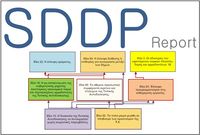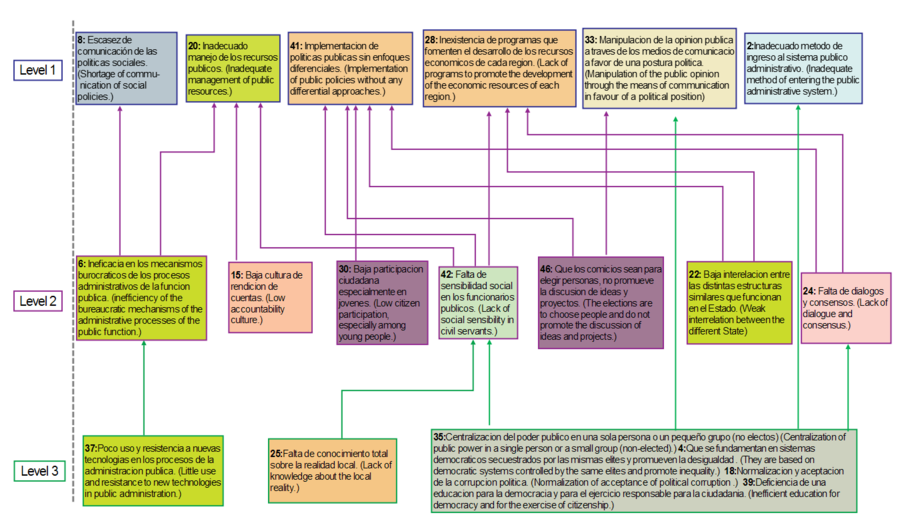SDDP Reinventing Democracy - Challenges (American Initiative)
|
Executive Summary
This paper reports the results of the second of a series of workshops organized by Future Worlds Center under the auspices of UNDEF. The dialogue was implemented in the context of the Reinventing Democracy in the Digital Era (UNDEF) project. The purpose of this project was to bring together young people from all aroud the world in an attempt to take apart and reconstruct the concept of democracy. The workshop was organized using the structured dialogic design process (SDDP) approach within the context of a rich web-based communication environment. This Co-Laboratoty was organized using the Structured Democratic Dialogue Process (SDDP) approach within the context of a rich web-based communication environment. It is organized by the American Initiative.
The Triggering Question (TQ) was
"What are key shortcomings of our current systems of governance that could be improved through technology?"
In response to the TQ, the 15 participants came up with 57 Actions, which were categorized in 10 clusters. Following the voting process, 16 ideas received two or more votes and were structured to create the influence MAP shown below.
According to the participants of this workshop, the following ideas appear to be the most influential:
- Challenge 37: Limited use of and resistance to new technologies in public administration processes. (Poco uso y resistencia a nuevas tecnologias en los procesos de la administracion publica)
- Challenge 25: Lack of knowledge about the local reality (Falta de conocimiento total sobre la realidad local).
- Challenge 35: Centralization of public power in a single person or a small group (non-elected) (Centralizacion del poder publico en una sola persona o un pequeño grupo (noelectos)
- Challenge 4: They are based on democratic systems controlled by the same elites and promote inequality (Que se fundamentan en sistemas democraticos secuestrados por las mismas elites y promueven la desigualdad).
- Challenge 18: Normalization and acceptance of political corruption. (Normalizacion y aceptacion de la corrupcion política).
- Challenge 39: Inefficient education for democracy and for the exercise of citizenship (De ciencia de una educacion para la democracia y para el ejercicio responsable para la ciudadanía).
Gallery
- .JPG
- .JPG
Participants
| Name | Country |
|---|---|
| Agustina Gricolo [1] | Argentina |
| Ana Figueroa [2] | Argentina |
| Carolina Beron [3] | Argentina |
| Emil Rodriguez [4] | Argentina |
| Francisco Villatore [5] | Costa Rica / San Salvador |
| Gustavo Ortiz [6] | Costa Rica |
| Jairo Iván Matus Contrera [7] | Nicaragua |
| Lina María_Jaramillo_Rojas [8] | Colombia |
| Marcos David Dominguez [9] | Argentina |
| Maria Angela Regis [10] | Argentina |
| Mariana Rojas [11] | Colombia |
| Mariano Schmidt [12] | Argentina |
| Nicolas Jares [13] | Argentina |
| Nicolas Muñoz Arango [14] | Colombia |
| Rodrigo Ivan Avalos [15] | Argentina |

